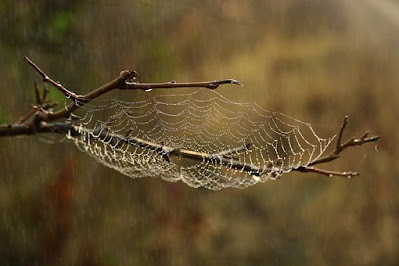‘Whoever Loves to Meet Allah, then
Allaah Loves to Meet him’
Shaykh Zayd Al-Madkhali رَحِمَهُ الله
On the
authority of Abi Al-Zinaad, on the authority of Al-A’raj, on the authority of
Abu Hurairah (may Allaah be pleased with him) that the Messenger of Allaah
ﷺ said:
Allaah , exalted be He the Most High, said:
“If My slave loves to meet Me then I love to meet him, and
if he dislikes to meet Me then I dislike to meet him.”
Shaykh Zayd Al-Madkhali رَحِمَهُ الله
“And this is specific to the time of (being at) the brink
of death. Close to the appointed time (of death). The believer is in a state of delightfulness. The
angels give him glad tidings. The angels descend upon him and give him glad
tidings. So he loves to meet Allaah. And the intended meaning of this is not at a time of wellbeing and
the ability to choose. For the mother of the believers, ‘Aaisha, may Allaah be
pleased with her said: “We all dislike death.” (Then) he ﷺ said: “The affair is not that, but
rather it is at the time of (being at) the brink of death.”Whoever loves to
meet Allaah at that time then Allaah loves to meet him. And the believer loves
to meet Allaah at that time (i.e the brink of death) due to what he sees from
good and what he feels from the sensations. In which Allaah, عزوَ جل said:
تَتَنَزَّلُ عَلَيْهِمُ الْمَلَائِكَةُ
أَلَّا تَخَافُوا وَلَا تَحْزَنُوا وَأَبْشِرُوا بِالْجَنَّةِ الَّتِي كُنتُمْ تُوعَدُونَ
“…on them the
angels will descend (at the time of their death) (saying): “Fear not, nor
grieve! But receive the glad tidings of Paradise which you have been promised!”
نَحْنُ أَوْلِيَاؤُكُمْ فِي الْحَيَاةِ
الدُّنْيَا وَفِي الْآخِرَةِ
“We have been
your friends in the life of this world
and are (so) in the Hereafter…” [41: 30-31]
Those verses.
And this is
what makes him (i.e. the believer) love to meet
Allaah. As for the people of wrongdoing (and sin) then, in that
instance, they do not love to meet Allaah because they will not be given
tidings of anything except torment and punishments in both the grave and the hereafter.
So he does not love to meet Allaah but rather he dislikes it and Allaah
dislikes to meet him. And that is not except that the recompense from Allaah is
relative to the kind of action
(performed). Such as the one who increase in performing righteous good deeds
and persists upon them, then Allaah will
make him firm. And the Angels descend upon him at every time from the times of
difficulty and need, and the greatest time of need is at the brink of death. So
this Hadeeth is understood to be (in relation to) this time (i.e. the time of being
at the brink of death).
Source: http://zaidalmadkhali.com/play-1017
Translated by:
Abu Inaayah Seif
www.oxfordsalafidawah.com


